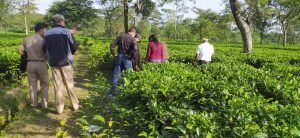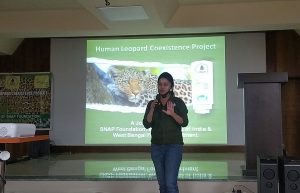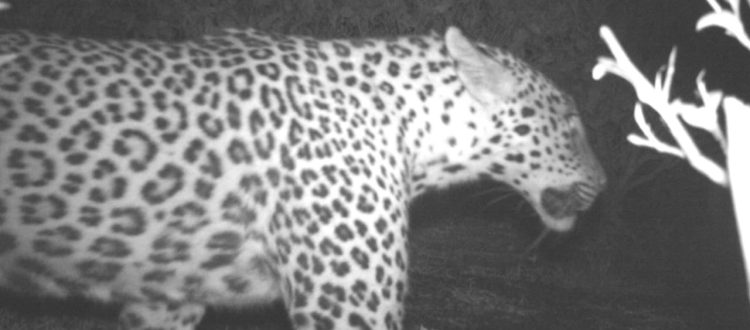Living with leopards – a RAP from Kurseong
Kurseong is a hill station, highlighted by beautiful landscapes and tea gardens. It also forms an important part of the transboundary wildlife corridor that is constantly used by animals including elephants, leopards, barking deer, spotted deer, and wild boars. Sadly, over the years, deforestation has made a strong impact on the local forest ecosystem. Increased human activity and urban infrastructure developments have left little space for wildlife. This had led to animals like leopards straying into nearby tea estates and villages in search of food and shelter. Preying occasionally on livestock, most interactions between humans and these wild predators have ended unceremoniously.
A Rapid Action Project with SNAP Foundation
In 2021 alone, 28 such conflict incidents were recorded in which humans, as well as leopards, were found injured. This created the need to create awareness among people about ways to co-exist. A Rapid Action Project was initiated with Ms Shimu Saha from SNAP Foundation to address human-leopard conflicts and promote co-existence through awareness. Ms. Saha is a wildlife conservationist who has previously has led conservation projects such as the Automated Elephant Early Warning Device Project in North Bengal and Chhattisgarh as well as the Vulture Conservation Project in North Bengal.
Meetings were initiated with various stakeholders including the Terai Branch Indian Tea Association (TBITA), Addl. PCCF North Bengal, CCF Wildlife North, DFO Darjeeling Wildlife Division and DFO Kurseong Division to introduce the project and initiate communication between the key stakeholders. Five tea estate managers from Kurseong were also present at the meetings.

Leopard movement monitoring; Photo: SNAP Foundation
Community for conservation
RAP also organized 16 mass awareness workshops in Kurseong (12) and Darjeeling (4) for 1,990 tea estate residents and workers. The primary aim of the workshop was to make the people understand the role and importance of leopards to the ecosystem and the protocols for handling conflict situations through wildlife-themed games and a small drama. The “Hathi Sathi Foundation” also participated in two of the workshops in Amzabad and Bijoynagar tea estates. Additionally, more workshops have been conducted for 590 female tea pluckers in five estates as they are often the victims of leopard attacks. 210 students have also been introduced to leopards and how to co-exist with them through workshops conducted at two primary schools.
Further, SNAP Foundation, with support from WTI helped form leopard monitoring teams (LMT) in the nine estates at these workshops. LMT members are being trained to monitor leopard movement and have been provided with necessary equipment including data recording sheets. WhatsApp groups have been formed with Forest Department staff, tea estate managers, and LMT members to aid communication regarding any leopard movement. Since their inception, 11 instances of leopard movement have been shared by LMTs and six instances by the tea estate manager.

Ms. Shimu Saha addressing the stakeholders during the workshop; Photo: SNAP Foundation
An LMT member recently used the siren to direct a herd of elephants away from the village in the Amzadabad tea estate. He has also shared that conflict cases have reduced since the advent of the project. “We hope the project will have a long-term impact to reduce conflicts and enable co-existence between tea estate residents and leopards,” he said.
Rapid Action Projects such as this, provide urgent critical support to local individuals and organizations to nip wildlife emergencies in the bud. A series of effective outcomes through a consistent approach contribute to a larger conservation impact. If you know of a deserving individual or organization that needs support to effect conservation action on ground, get in touch with us through rap@wti.org.in









